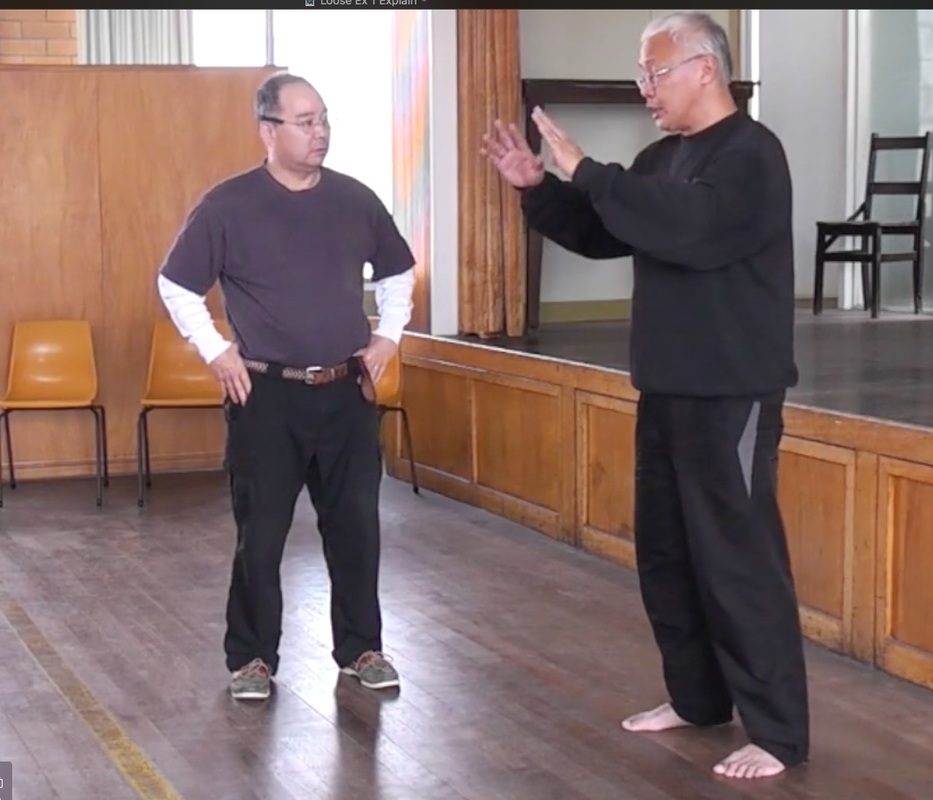(article written by Bill Cropper Web: www.thechangeforum.com reposted with permission)
Published on February 18, 2017 Linkedin
Bill Cropper
EI, Leadership, Culture, Change Consultant, Facilitator, Coach & Presenter
Mindfulness isn't a practice you encounter all that much in the rush-n-hurry of workplaces, yet it actually underscores so many things that matter for good leadership. Stop to think. Don't rush into hasty decisions. See the bigger picture. Think systemically. Consider consequences. Pause before acting. Reflect before deciding. They’re all injunctions we regularly hear in relation to leadership. But do we pay all that much attention to them?
1. Demands, Distraction and Divided Attention
Mindful leaders seem to be a pretty rare species in most workplaces I come across. Finding the mental space to focus can appear impossible. Being present for the people we lead is regarded as time-limited luxury we simply can't afford - especially if we let our minds wander in worry to all the work piling up or the latest crisis we've got to avert. For instance:
- We feel pressured by those higher-up into the need to perform, please or appease. We get caught-up in an emotional pressure-cooker or we’re thinking way too much about our own convenience, comfort, self-interest or success.
- We’re unwittingly roped into mind-traps like tunnel-thinking, where we fail to step back, pause and see the bigger picture, or re-active-thinking, where every situation is seen as a crisis to rush-in and fix
- We feel pulled from pillar to post by the demands of the job, by constantly recurring tough talks, a sense of futility at a lack of progress, or the ever-shifting landscapes of change or political minefields we have to traverse
2. Being a Mindful Leader
If you're thinking of being more mindful, I imagine you're wondering what exactly mindful leaders mind?I think mindful leadership starts with minding ourselves - getting back in our bodies long enough to pay attention to what's going on in there - our thoughts, feelings, sensations. Once you start inner-focusing like this, I've found that your outer-focus gets better. You're more aware of your patterns of thinking, feeling and acting.You start to focus better on other people - being more mindful of present moments; minding the impact you have on others around you; being mindful of situations, events and trends around you so you can take more mindful action. Soon other benefits may begin to emerge:
- Mindfulness connects you to other emotionally productive states like focus, flow, presence and clarity that matter for good work and good leadership.
- It’s key to being able to stay focused, open-minded, less stressed and retain emotional balance, to dampen down disruptive emotions and be more calm, connective and compassionate
- It helps you to manage distractions and mind-wandering, ease anxiety, curtail confusion and build-up your reserves of resilience and well-being
- It helps you manage complexity and competing priorities, make better decisions, take wiser action, be strategic, and yet able to switch attention to deal with the details of what’s going on right now
- You begin to see more expansively how your state-of-mind affects the results you get, the effects your produce, the relationships you have with others, and how you make the world unfold around you.
3. Mindful leadership starts with Emotional Intelligence Like lenses in the same binoculars, mindfulness and emotional intelligence (EI) are both essential foundations for good leadership and intimately inter-linked.
- It's true enough to surmise mindful leaders must be emotionally intelligent, and that emotionally intelligent leaders have a good grasp on mindfulness. So close is the connection between the two, that EI is almost a parallel pre-requisite for moving to a more mindful style of leadership.
- Many markers of mindfulness correspond to productive emotional states EI nurtures. Mindful Leadership connects directly to certain EI competencies: focus, flow, presence, equanimity, even-mindedness, positivity, connectivity, resilience, compassion and perseverance.
- Both share the same start-point of self-awareness: that to lead well, we need to be more mindful and self-aware of our thoughts, emotions and actions. And both highlight deep self-reflection to regulate thoughts and feelings, rather than unconsciously allowing them to control or hijack you into dysfunctional behaviour patterns or wrong action.
4. What's a Mindful Leader Look Like? Most of us have probably spent more time around leaders who are driven, self-possessed, single-minded, egotistical, power-conscious and pressured.
What does a mindful leader look like? How do I spot one? How do I know if I’m one or not? Here’s a couple of connections I think are important...
4.1 Mindful leaders are aware of thoughts, emotions and actions and self-regulate them
The biggest hurdle to leading others is lack of self-awareness, coupled with an inability to manage yourself. Leaders constantly enmeshed in a web of “doing and reacting" without reflecting and connecting, get out of touch with themselves and others. Sharpening self-awareness leads to mindfulness. You become aware of what’s going on inside you on many different levels: body, mind, emotions, actions and your inner trains-of-thought and how these make you think, feel and act.
4.2 Mindful leaders are present to what’s happening around them...People notice when their leaders are present as much as they do when they’re not. Mindful know what matters most and focus on that rather than be distracted by several priorities at once. They focus on one thing at a time and subdue the mind-chatter within, so they can fully engage and be present for whoever and whatever’s in front of them, and really listen to understand, with no judgement and lots of curiosity.
4.3 Mindful leaders are connective...They’re mindful of how vital it is to connect with others to maintain healthy relationships, sustain performance and get results. They’re empathetic. They can read what others think and feel, and this keeps them in-touch and in-tune. They engage in frank, open dialogue, hear people’s problems, ideas, experiences and build relationships while doing it.
4.4 Mindful leaders are curious not critical...They’ve mastered the inclination to be judgemental. As we often point out in our workshops, leaders who are habitually critical and judgmental make it unsafe for others around them to approach them, talk over issues, give feedback or hold a different view. Because they're curious, mindful leaders are also keen observers, adept at watching and listening to what’s going on.
4.5 Mindful leaders are calm and compassionate...Because they can be present, focused and non-judging, mindful leaders exude a certain calmness. They're even-minded, emotionally balanced and keep their wits about them when everyone else may be falling apart under the pressure. The calm mindful leaders emanate can also spread to others and provides a basis for cultivating compassion and showing sincere, heartfelt consideration. They genuinely care for the well-being of others and have a humane side that puts others needs before theirs
4.6 Mindful leaders take positive and thoughtful action...It takes a positive outlook to take positive action. It's an integral part of being a mindful leader. They can act decisively but prefer to reflect on a situation, and see it from different angles, before they do. They seem to manage to find what matters most in a situation and focus on that first. Perhaps that has to do with the qualities of focus and stillness that are inherently relatable to mindfulness.
4.7 Mindful leaders take focused and emotionally balanced...Focus and clarity help mindful leaders confront reality and realise their role in shaping it. They can accept hard truths about situation they face and so take more appropriate or relevant action, not obscured by their own prejudices and attachments. One other major legacy of mindful leaders is emotional balance - what’s known as equanimity.Balance comes from pausing and being present in-the-moment which also helps decrease stress and improve personal productivity. It allows leaders to get off the roller-coaster of reactivity and being over-attached to over-controlling outcomes
5. From Mindlessness to Mindfulness
Leaders can often feel constrained from moving into a more mindful mode, as organisations emphasise management imperatives counter to mindful leadership: valuing action over reflection, putting profits before people, decisiveness over patience and reacting rapidly over considered systemic action. We can get stuck in mindless loops of unreflective action, unhelpful, sometimes toxic thoughts, and reactivity.Of course there’s nothing wrong with getting results. Most leaders won’t last long if they don’t. It’s more a matter of balance. When we over-emphasise hard-edged results, figures, deadlines and deliverables, we give managers the cultural message that other things really essential to leading people to get those results don’t count – things like connectivity, compassion and abiding relationships.The purpose of becoming a more mindful leader is to ultimately improve the quality of our actions and our interactions, by slowing-down to focus on whatever’s in front of us right now, so we deal with it more adeptly, more systemically, more subtly and more sensitively. You put-aside distractions and give your full attention to whatever’s unfolding right in front of you.It’s being present to situations and seeing them objectively for what they are – not what we’d like them to be. Who knows - more mindfulness may even take the lid off that corporate pressure-cooker so we can slow-down on some of those crucial decisions and savour our options more.
Although it's gaining momentum, many leaders still think of mindfulness as mainly meditative – and possibly impractical. Asking them to sit still is a bit counter-intuitive to the action-cultures most of us inhabit and mindfulness commentators who tell leaders to "spend more time on the cushion" may not spread quite the right message.You don’t have to formally meditate to be mindful. If you’re looking for ways to enhance the quality of your leadership actions and sharpen your focus and thinking capacity. Our Mindful Leadership in Action clinic has lots of different ways you can be more focused, present stay emotionally balanced and outcomes-focused, as you go about your everyday leadership work, and at the same time, lessen-off some of the stress you accumulate in busy workplacesOur Mindful Leadership in Action self-coaching guide has many tools and ideas for speaking mindfully, listening mindfully, thinking mindfully, acting mindfully and leading mindfully. If you’re looking for ways to enhance the quality of your leadership actions and sharpen your focus and thinking capacity, Mindful Leadership in Action may provide a pertinent platform for you.
2017 dates start with BRISBANE on March 23-24 followed by CAIRNS April 6-7. For more contact me. I’d be delighted to welcome you or some of your colleagues to one of these exceptional, minds-on, learning forums.Till Next Time
Bill Cropper - The Change Forum
Mob: 0429-687 513
Tel: 4068 7591
Email: [email protected]
Web: www.thechangeforum.com



 RSS Feed
RSS Feed